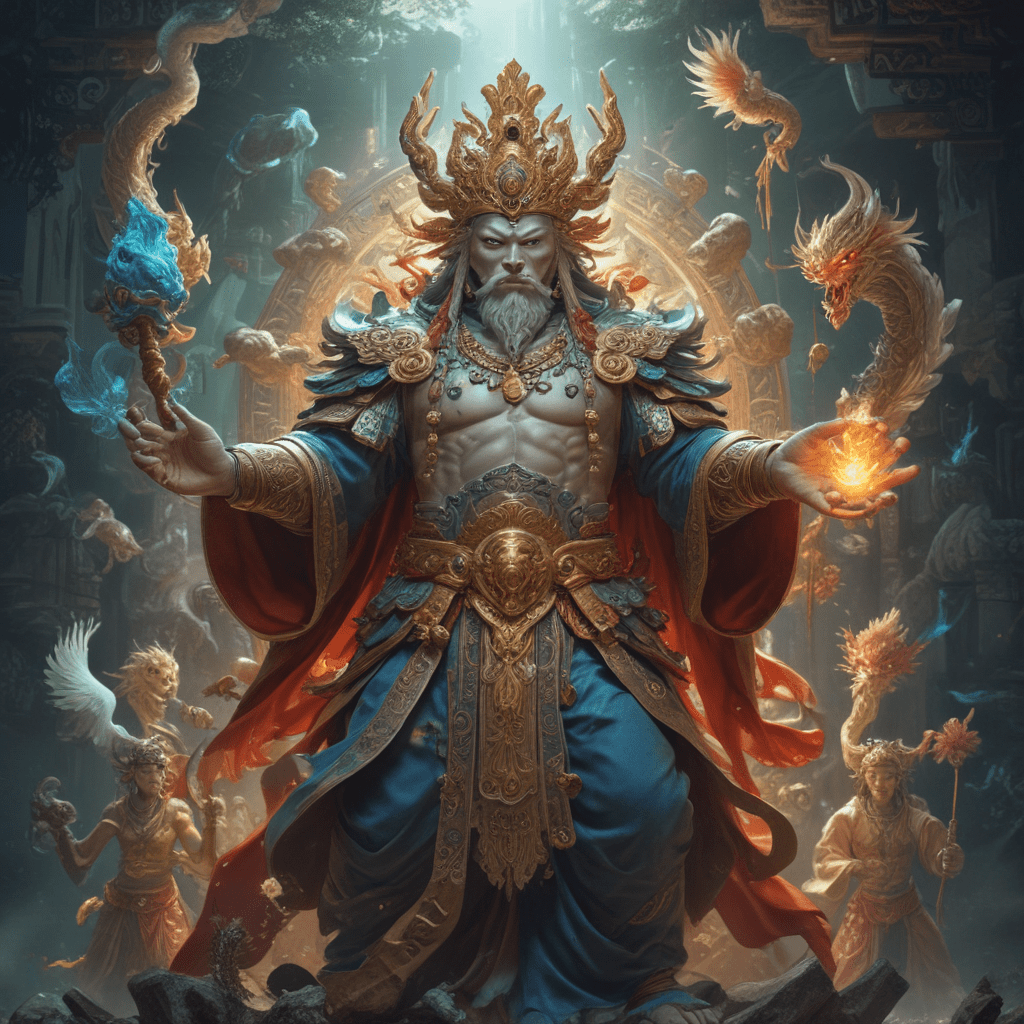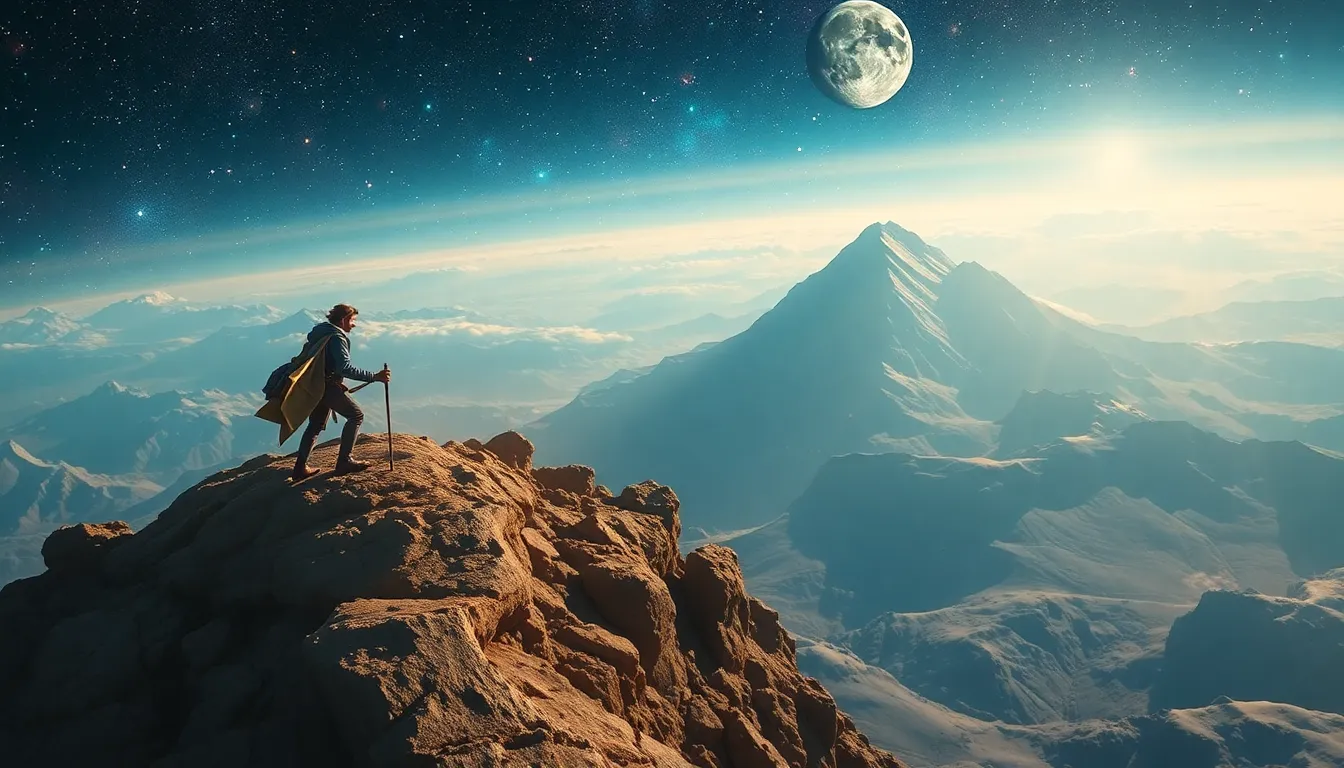Introduction
Chinese mythology is a rich tapestry of tales and legends, filled with fascinating deities and creatures. Among these are numerous deities associated with health and healing, who have been revered for centuries by the Chinese people. These deities embody the Chinese people's deep respect for the healing arts and their belief in the power of divine intervention in times of illness and disease.
Baosheng Dadi: The Medical Deity of Life
Baosheng Dadi, also known as Wuji Laoren, is one of the most famous and revered deities of health and healing in Chinese mythology. He is considered the patron saint of medicine and is often depicted as an elderly man with a long white beard and a benevolent expression. Baosheng Dadi is said to have been a real-life physician who lived during the Tang dynasty. He was renowned for his medical skills and his compassion for the sick and suffering.
Taiyi Zhenren: The Celestial Healer
Taiyi Zhenren is another important deity of health and healing in Chinese mythology. He is considered the head of the Celestial Bureaucracy of Medicine and is said to have the power to cure all illnesses. Taiyi Zhenren is often depicted as a young man with a handsome face and a dignified demeanor. He is said to live in the Jade Emperor's palace in heaven, where he dispenses medicine to the gods and immortals.
Sun Simiao: The Protector of Imperial Health
Sun Simiao was a renowned physician and alchemist who lived during the Sui and Tang dynasties. He is considered one of the greatest medical figures in Chinese history and is revered as a deity of health and healing. Sun Simiao was said to have possessed extraordinary medical skills and was able to cure even the most difficult diseases. He is also credited with writing several important medical texts, including the "Qianjin Yaofang," which is considered one of the most comprehensive medical works in Chinese history.
Bian Que: The Divine Physician of the Warring States
Bian Que was a legendary physician who lived during the Warring States period. He is considered one of the greatest physicians in Chinese history and is said to have been able to perform miraculous cures. Bian Que's medical skills were so renowned that he was said to have been able to resurrect the dead. He is also credited with developing many new medical techniques, including acupuncture and moxibustion.
Hua Tuo: The Master of Surgery and Anesthesia
Hua Tuo was a renowned surgeon who lived during the Han dynasty. He is considered one of the greatest surgeons in Chinese history and is revered as a deity of health and healing. Hua Tuo was said to have been a master of surgery and is credited with developing many new surgical techniques. He is also said to have invented anesthesia, using a combination of herbs and acupuncture to render patients unconscious during surgery.
Li Shizhen: The Ming Dynasty Materia Medica Compiler
Li Shizhen was a renowned physician and pharmacologist who lived during the Ming dynasty. He is considered one of the greatest medical figures in Chinese history and is revered as a deity of health and healing. Li Shizhen was said to have spent over 30 years compiling the "Bencao Gangmu," which is considered one of the most comprehensive materia medica in Chinese history. The "Bencao Gangmu" contains descriptions of over 1,800 medicinal substances and is still used by herbalists today.
Zhang Zhongjing: The Father of Traditional Chinese Medicine
Zhang Zhongjing was a renowned physician who lived during the Han dynasty. He is considered one of the greatest physicians in Chinese history and is revered as the father of Traditional Chinese Medicine. Zhang Zhongjing was said to have developed many new medical treatments, including the use of herbal decoctions and acupuncture. He is also credited with writing the "Treatise on Cold Damage," which is one of the most important medical texts in Chinese history.
Shennong: The Legendary Divine Farmer
Shennong is a legendary figure who is said to have lived during the Neolithic period. He is considered the divine farmer and is revered as a deity of health and healing. Shennong is said to have taught the Chinese people about agriculture and medicine. He is also credited with discovering many medicinal plants and developing new medical treatments.
Conclusion
The Chinese mythological deities of health and healing are a testament to the Chinese people's deep respect for the healing arts and their belief in the power of divine intervention in times of illness and disease. These deities have been revered for centuries and continue to be an important part of Chinese culture today.
FAQs
Who is the most famous deity of health and healing in Chinese mythology?
Baosheng Dadi, also known as Wuji Laoren, is the most famous and revered deity of health and healing in Chinese mythology.
What are the names of the three most important deities of health and healing in Chinese mythology?
The three most important deities of health and healing in Chinese mythology are Baosheng Dadi, Taiyi Zhenren, and Sun Simiao.
What is the name of the legendary divine farmer who is revered as a deity of health and healing in Chinese mythology?
Shennong is the legendary divine farmer who is revered as a deity of health and healing in Chinese mythology.



